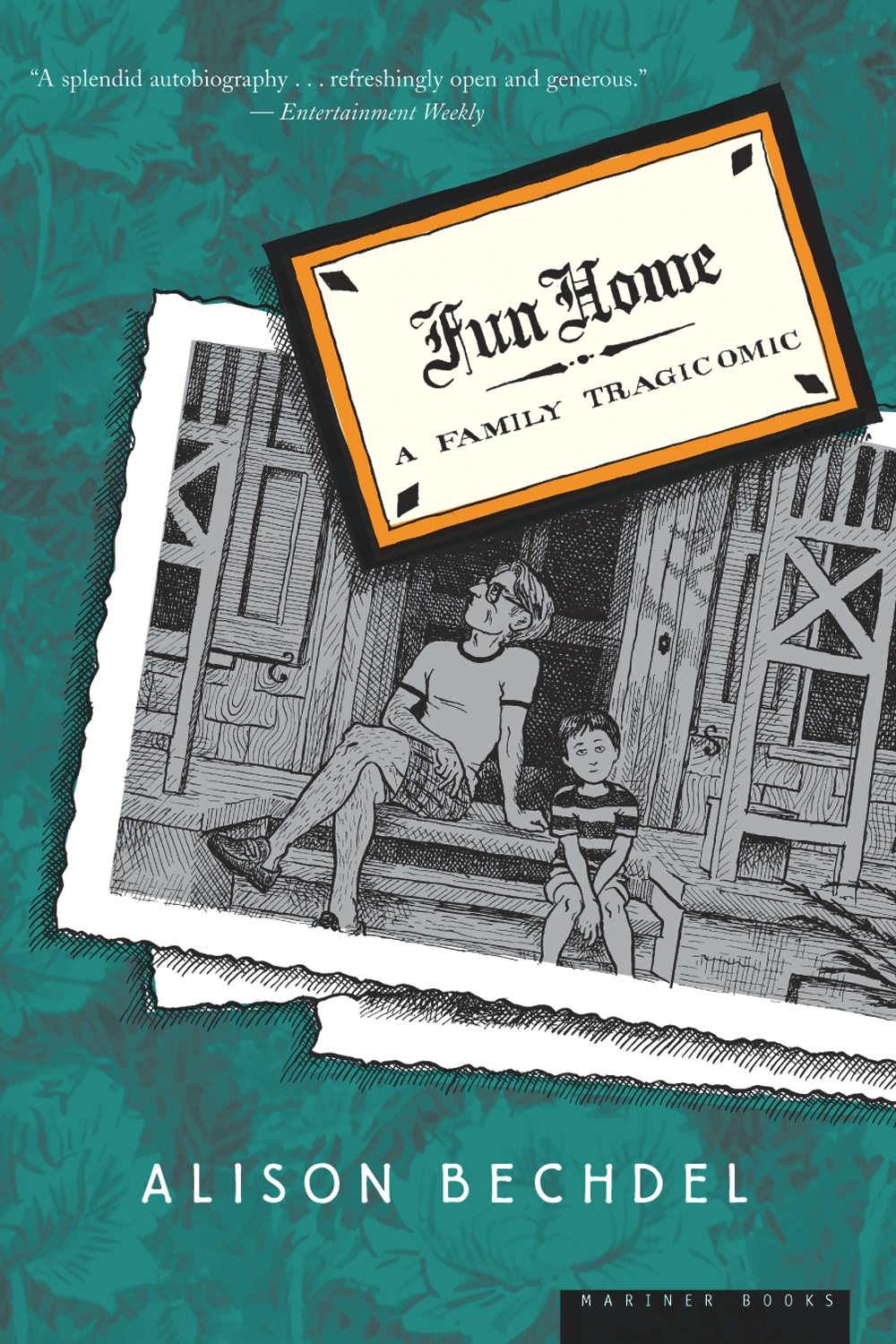
Brandon Ambrosino is a freelance writer who covers religion.
Brian Grasso, a freshman at Duke University, started a discussion this week when he published an op-ed in the Washington Post defending his decision to not read Fun Home, a critically acclaimed graphic novel included on the school’s recommended reading list for incoming freshman. One of several students who refused to read the novel, Grasso explains his decision by quoting the Bible:
Jesus forbids his followers from exposing themselves to anything pornographic. “But I tell you that anyone who looks at a woman lustfully has already committed adultery with her in his heart,” he says in Matthew 5:28-29. “If your right eye causes you to stumble, gouge it out and throw it away.” This theme is reiterated by Paul who warns, “flee from sexual immorality.”
The problem with this argument is that it equates Fun Home, an award-winning novel written by Alison Bechdel, a MacArthur Genius Award recipient, to pornography and seems to suggest that some sexual cartoon drawings are so enticing that readers actually run the risk of committing metaphorical adultery with them. I’d like to know how he would respond if he were shown similar images in biology or health classes.
I don’t mean to dismiss Grasso’s sensitivity. As he rightly points out, if we are truly sincere in our efforts to cultivate diversity, then those efforts need to include dialogue with conservative perspectives. But I do want call out the culture war game at play in this debate, clear in the opening words of his essay: “As a Christian.” Those words frame his entire argument as a defense of his way of seeing the world: Christians v. Everyone Else.
Like Grasso, I grew up conservative Christian, with limited exposure and general sensitivity to mainstream pop culture. I was in college before I bought my first secular rock album. In high school biology class, rather than create an illustrated geological time table, which was the assignment, I illustrated a timeline of the biblical seven-day creation story. (I failed.) I thought that enjoying secular books with questionable themes, like The Catcher in the Rye, was sinful—the book had the f-word in it!
But my fragile sensibilities were challenged when I got to—of all places—a conservative Christian college.
I was shocked when I learned that our English classes required us to read literature that depicted scenes of sexuality and violence, and I went to my professor, Karen Swallow Prior, about it. “As a Christian, aren’t we supposed to separate ourselves from the world, and the world’s art?”
No, she said. Not at all.
Prior read me a story from the Bible that has become the standard Christian defense for full participation in secular pop culture. Paul, on his missionary travels, stopped in Athens, a city full of idols. In perhaps the most rousing speech attributed him, he addressed his philosophical audience:
Men of Athens, I perceive that in every way you are very religious. For as I passed along and observed the objects of your worship, I found also an altar with this inscription, ‘To the unknown god.’
He then gave this unknown God a name—for him, it was Jesus—before going on to quote Epimenides and Aratus. This proves that Paul not only read Pagan poetry, but memorized it!
The striking thing about Paul’s visit to Athens is how comfortable he seems interacting with secular audiences and their philosophies and art. He spent time observing, examining, and becoming familiar with the same cultural artifacts that would have been so offensive to his religious sensibilities. (Paul’s cultural background is Pharisaic Judaism, and created idols would have been reprehensible to him.) The moral of this anecdote is that Christians who wish to engage with non-Christians must actually engage them and the cultural artifacts they value.
A careful study of Fun Home would have been the thing to do “as a Christian.” Only then, like Paul, would Duke students have been able to respond critically to the work. “Test all things,” writes Paul, “and hold fast to what is good.”
This is a point that John Milton makes in “Aeropagitica,” his famous essay arguing against the Licensing Order of 1643, which censored works pre-publication. For Milton, free speech was of utmost importance. He argued that shutting down free inquiry wouldn’t safeguard orthodox doctrine.
A man may be a heretic in the truth; and if he believe things only because his pastor says so, or the Assembly so determines, without knowing other reason, though his belief be true, yet the very truth he holds becomes his heresy.
The Fun Home debate highlights many Christians’ problematic relationship with pop culture. Some of them make a regular habit of avoiding good art out of fear that it will somehow ruin them. But they’re doing themselves—and public Christianity—more harm than good. Given that so many Christians make it a point to keep themselves from participating in secular culture, it’s no wonder my faith tradition’s contribution to the contemporary world of art has been severely and noticeably lacking.
More Must-Reads from TIME
- Donald Trump Is TIME's 2024 Person of the Year
- Why We Chose Trump as Person of the Year
- Is Intermittent Fasting Good or Bad for You?
- The 100 Must-Read Books of 2024
- The 20 Best Christmas TV Episodes
- Column: If Optimism Feels Ridiculous Now, Try Hope
- The Future of Climate Action Is Trade Policy
- Merle Bombardieri Is Helping People Make the Baby Decision
Contact us at letters@time.com